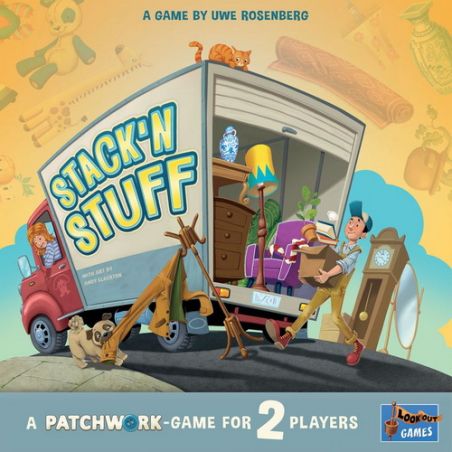
Patchwork: Halloween Edition
Restock
Restock


RESTOCK
While we wait for the arrival of more units of this item, you can now buy and guarantee one of those units. The estimated time of arrival at our warehouse can range from 1 week to 2 months.
An order that contains at least one "Restock" item will only be sent when it is complete, because only one shipment is included.
To receive now other items that we have in stock, we recommend placing a separate order.
Publisher Lookout Games
Language

Language dependence (0-4) 0. No necessary in-game text
Player Count 2
Playing Time 0 to 30 minutes
Designer Marianne Waage, Uwe Rosenberg
Minimum age 6
Categories Abstract Strategy, Puzzle
Mechanics Card Drafting, Grid Coverage, Open Drafting, Square Grid, Tile Placement, Time Track, Victory Points as a Resource
Related products
Restock
Out-of-Stock
Last unit in stock
Restock
In stock
In stock
Out-of-Stock
In stock
Restock
Out-of-Stock
Item by request
In stock
In stock
Item by request